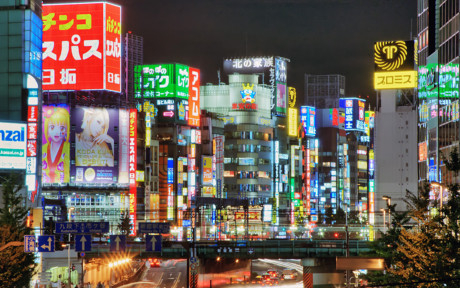
The popular Chinese imagination of Japan has followed along with Japan’s evolution over the past four decades. In the late 1970s, when China started to reform and open up to the rest of the world, Japan was Asia’s economic power. Then, after the arrival of Japanese anime in China, Japan was the “Kingdom of Anime”. In more recent years, China’s neighbour has become a “shopping paradise” that attracts some 6.5 million visitors each year.
These days, however, Japanese people don’t look at their country and see this same happy, pleasant place. Instead, Japan’s sense of itself is increasingly dominated by the anxiety of a not-so-distant future when the country will become a so-called ghost civilisation. Indeed, the term “ghost city” has quietly become a popular Japanese reference.
A few days ago, a friend who works as an executive for a large company based on the northern island of Hokkaido came to visit me in Tokyo. Over dinner, he laid out his “Hokkaido collapse theory”. He explained how originally only the Ainu people and animals lived in Hokkaido. But after the Meiji Restoration in 1868, Japanese people started to immigrate there. “Now,” he said, “while the Meiji Restoration marks its 150th anniversary next year, Hokkaido’s population is continuously falling.” My friend concluded by saying that if this continues, Hokkaido will collapse and become a “ghostdo” — a ghost city.
Yubari City, one of Hokkaido’s important industrial towns, once had a population of 120,000 people. Today, it’s dwindled to 7,000. Only Sapporo, the capital of Hokkaido, has not seen its population fall in recent years. All other cities in the region have experienced a drastic demographic depression.
I can recall the amazing things I had heard and experienced on my visit to the island two years ago.
One night, after dining with the mayor of Hokkaido City, we took a cab to the Noboribetsu Hot Spring Resort, a 15-minute drive at a normal driving speed. But our trip that night took 40 minutes because we were only driving 20 to 30 kilometres per hour.
It was nighttime. There were few cars on the wide highway. The taxi driver explained why he was going below the speed limit: “This area used to have a large population. Now the population has become scarce, so bears and foxes often come down from the mountains. These animals often rush to the roads so I’m obliged to drive slowly.” When I recounted this story to my visiting friend from Hokkaido, he told me with a wry smile, “Just the other day, I ran into a deer!”
In fact, the ghost civilisation is not unique to Hokkaido. In May, the Okawa Village of Kochi Prefecture located on rural Shikoku Island was obliged, in an unprecedented move, to abolish its village council. It’s said that because of a dramatic demographic decrease, the council could no longer operate. Now, the 350 adults living in the village simply have to gather directly to discuss the village’s affairs. Like Athens in ancient times, Okawa Village is returning to the purest form of democracy.
According to Japan’s National Institute of Population and Social Security Research, by 2040, most of the country’s smaller cities will see a dramatic drop of one-third to one-half in their populations. Certain metropolises that look like they’re bustling today will turn into ghost cities tomorrow. Japan’s overall population of 126 million is projected to drop to 80 million in the next three decades.
Behind these statistics is the monumental challenge of Japan’s ageing society. When the population falls to 80 million, about 35 million of those people will be older than 65 years old. Since the government considers 15- to 65-year-olds part of the labour force, every labourer will have to support one elderly person in the future.
One Japanese sociologist has predicted that the social system in Japan can’t possibly be maintained unless personal income tax is doubled to 90 per cent. If I were a young person in 2040, I’d probably leave my own country. Alternatively, a movement demanding a lower income tax may rise. By this time, fighting in the Japanese Parliament will switch from being between the ruling Liberal Democratic Party and the opposing Democratic Progressive Party to being between the ruling elderly and the younger opposition. In brief, Japan is awaiting a turbulent era.
Japan currently has 8 million empty housing units. Because young people normally don’t live with their parents, children inherit an additional house or apartment when their parents die. In the past, children would have earned a substantial income by selling the property, but it is a buyer’s market now and people are holding on to their properties.
In Japan, a mass of empty houses can’t be sold. An hour’s drive from Tokyo, rows of apartments stand almost completely uninhabited. Predictions suggest that in 15 years Japan will have 20 million empty houses.
While in China, the number of restaurants has increased over the past 25 years, Japan is heading in the opposite direction. Restaurants have decreased to 350,000 today from 850,000 in 1990. In the same period, Japanese wine bars, once quite popular, have dropped to 50,000 from 250,000. The sharp drop in the number of Japan’s restaurants and bars points to a drying up of vigour and vitality.
China should heed the lesson of Japan’s ghost civilisation. China’s elderly population is equal to the whole population of Japan, and it is still growing. Japan became rich before becoming an ageing society, whereas China is ageing before spreading its wealth. Indeed, China’s future demographic problems may be much worse than Japan has ever faced.
–Worldcrunch/New York Times News Service












